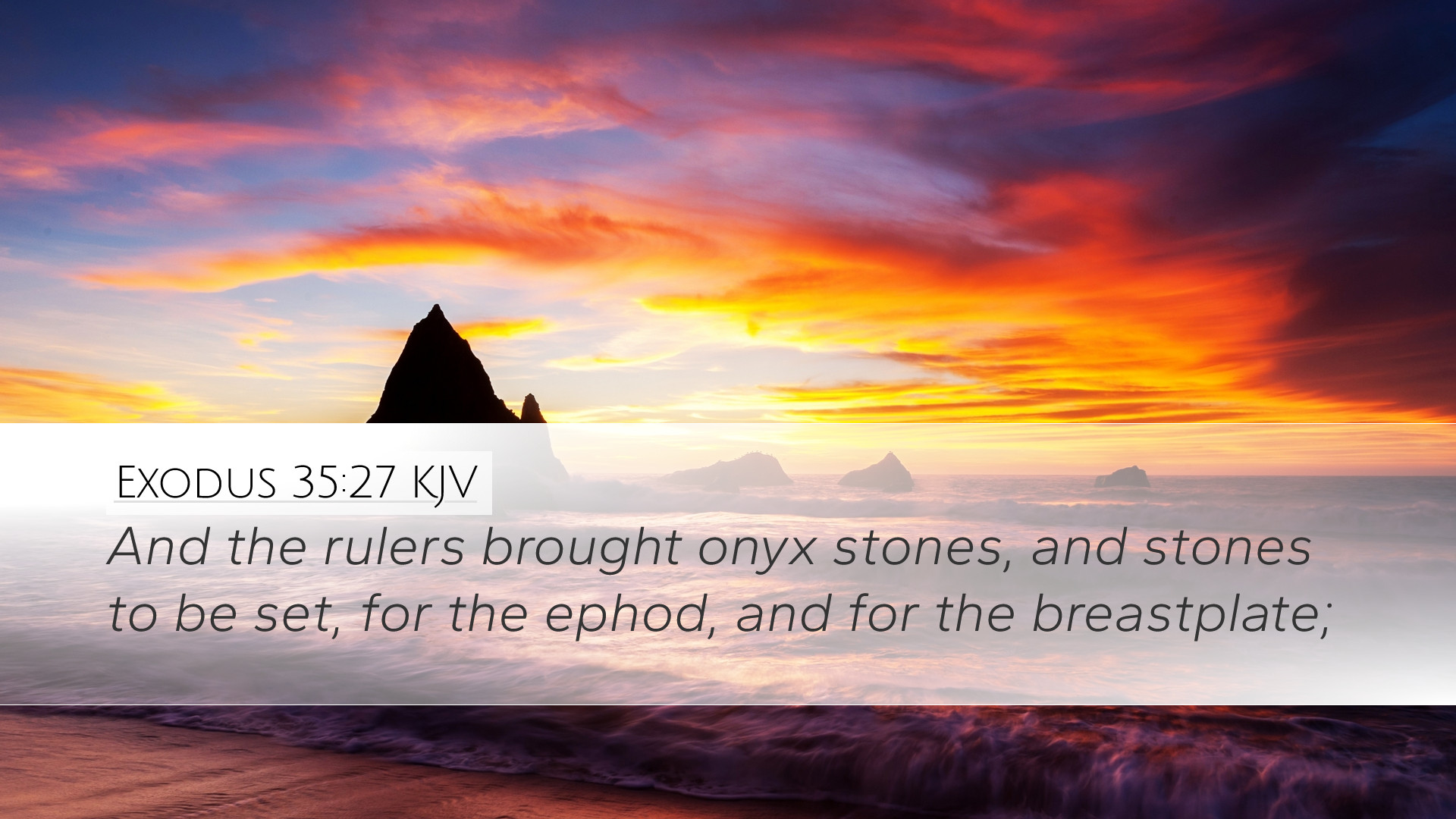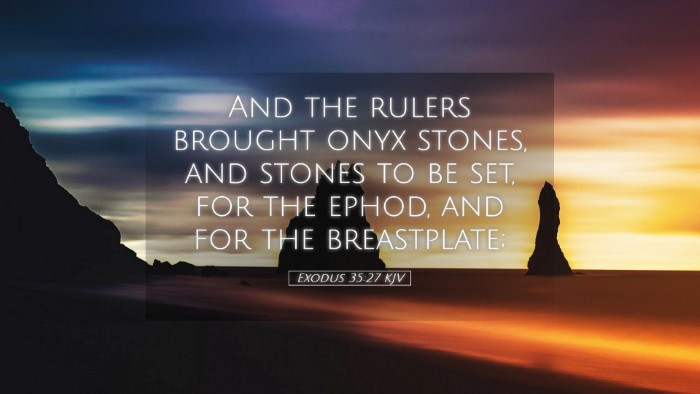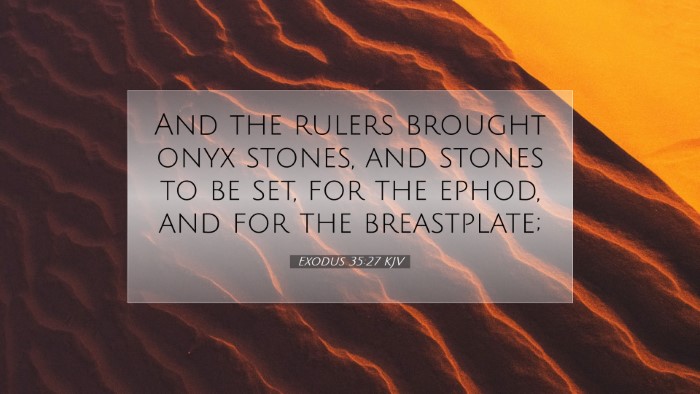Exodus 35:27 Commentary
Verse Reference: Exodus 35:27 - "And the rulers brought onyx stones, and stones to be set, for the ephod, and for the breastplate."
Introduction
This verse appears in the context of the instructions and contributions for the construction of the Tabernacle. It highlights the eagerness and generosity of the rulers of Israel in contributing valuable materials for the service of God. The significance of this verse is multifaceted, addressing themes of leadership, stewardship, and the aesthetics of worship. Commentaries from noted biblical scholars provide valuable insights into the implications of this passage.
Contextual Analysis
The book of Exodus marks a critical juncture in the history of Israel, where they transition from bondage in Egypt to the establishment of a covenantal community at Sinai. Following the commandments received, Moses appeals to the people for contributions to build the Tabernacle, which is a dwelling place for God among His people. The rulers’ donations are a notable act of obedience and reverence towards God’s commandments.
Matthew Henry's Commentary
Matthew Henry emphasizes the collective effort and generosity demonstrated by the leaders. He notes:
- Spiritual Leadership: The leaders took the initiative to contribute precious stones, showcasing that true leadership involves setting an example in spiritual matters.
- Willingness to Serve: The offering of valuable items for the ephod and breastplate signifies the importance of coming together in unity for God’s service.
- Symbolism of Stones: The onyx stones and others referenced are not merely material possessions but serve crucial roles in the garments of the priests, symbolizing their intercessory role before God.
Albert Barnes' Notes
Albert Barnes provides a detailed analysis of the materials mentioned:
- Importance of the Ephod and Breastplate: Barnes points out that these items not only signify praise and glory to God but also represent the priestly office and the people's representation before the Lord.
- Generous Contributions: He notes the rulers’ willingness to contribute valuable resources reflects their recognition of God’s sovereignty and the importance of worship in their national identity.
- Collective Contribution: By mentioning the rulers, it indicates leadership's specific role in the dedicated worship and service unto God.
Adam Clarke's Commentary
Adam Clarke brings forth rich insights into the construction aspect:
- Cultural Significance: Clarke contextualizes these precious stones within the broader cultural context of the Near East, where wealth is often designated for divine purposes.
- Priestly Significance: He explains the role of the ephod and breastplate in the Levitical service, shedding light on how they were intricately designed to bear the names of the tribes of Israel before God.
- Inspiring Generosity: Clarke also reflects on the spirit of generosity in giving, noting the metaphorical and literal significance of giving one's best for God's service.
Theological Implications
The contributions of the rulers can be explored through several theological lenses:
- The Nature of Worship: This passage illustrates that true worship often involves tangible acts of service and sacrifice. It links the sacred to the material, demonstrating that what we dedicate to God reflects our heart's posture.
- Leadership and Responsibility: The requirement for leaders to lead by example in their faithfulness to God’s commands applies today. Their actions encourage those they lead to engage in acts of worship.
- God’s Provision: The mention of precious stones reveals the beauty and majesty of God’s dwelling, underscoring the importance of excellence in worship. God deserves our best, as every detail of the Tabernacle was intentional in glorifying Him.
Practical Applications
For modern-day pastors, theologians, and students of the Word, there are clear practical applications derived from Exodus 35:27:
- Encouraging Generosity in the Church: This passage serves as an admonition to inspire congregants to contribute resources to God’s work, fostering a giving culture rooted in gratitude.
- Exemplifying Leadership: Leaders should be at the forefront of encouraging and modeling worshipful living and giving, showcasing that stewardship is a key aspect of spiritual leadership.
- Commitment to Excellence: A call for excellence in worship spaces and practices that reflect the glory of God, aiming not only for functionality but also for beauty and reverence in all things pertaining to service.
Conclusion
Exodus 35:27 serves as an essential reminder of the role of contributions in worship, the significance of communal efforts in the life of faith, and the beauty of bringing one’s best to God. The reflections gathered from the commentaries of Henry, Barnes, and Clarke together elucidate not just the historical and textual nuances of this verse, but also its enduring relevance for today’s church.


